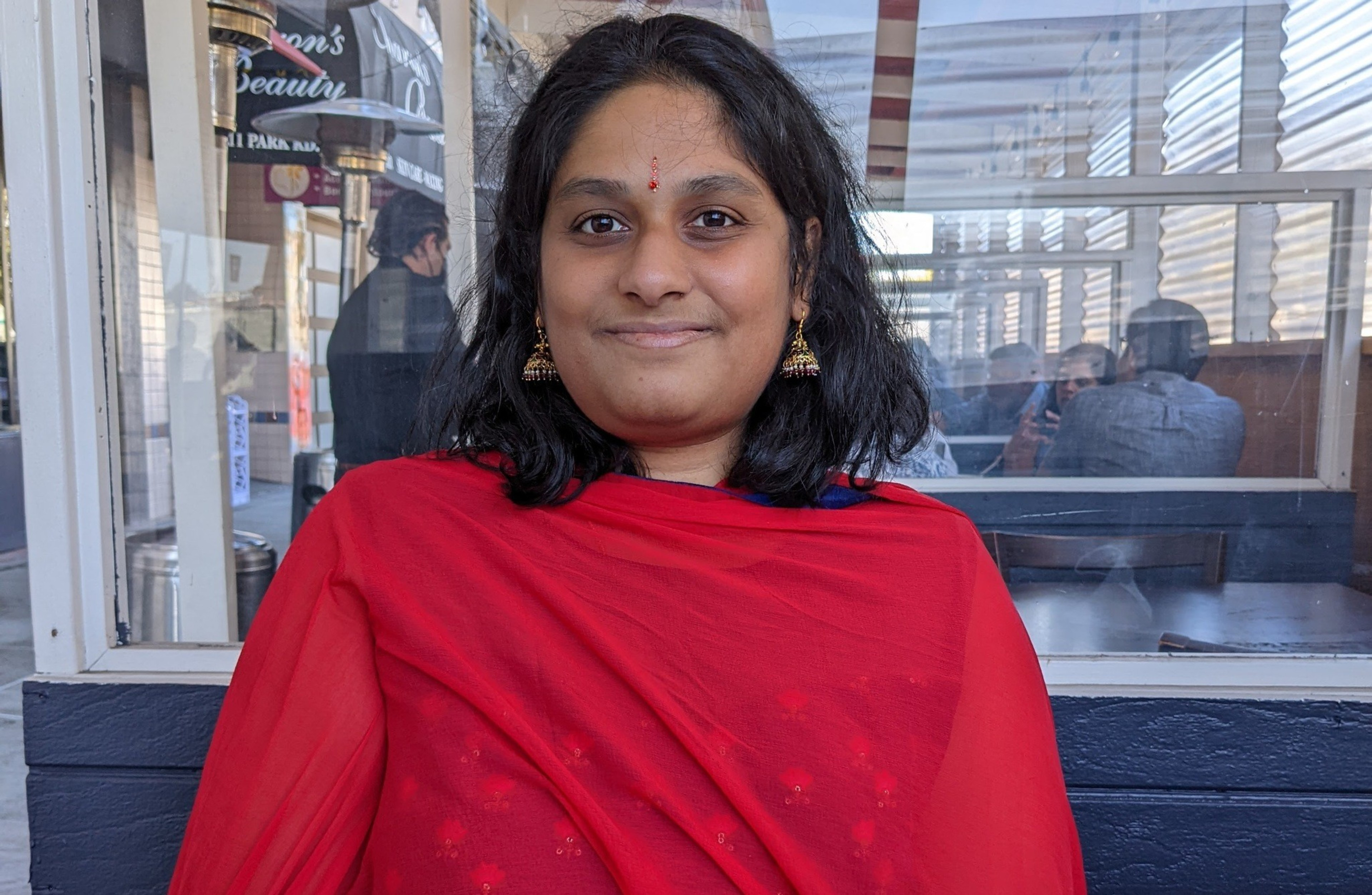When Lana Kostenko came to California from her native Kyiv, Ukraine, over a decade ago, she wanted to create a career in the center of the American tech industry.
She worked for Apple and education tech firm Study.com and built a life for herself in San Francisco. Then, last year, everything changed.
On Feb. 24, 2022, Russia invaded Ukraine, razing cities, killing civilians and displacing millions of people.
“It was weird doing market research for tech clients when I knew that bombs were exploding in Ukraine and I felt like I could actually do something,” Kostenko said.
She began looking for ways to help her native country. This May, that impulse led Kostenko to become the managing director of ENGin—pronounced like “engine”—a nonprofit that has taken an unusual approach to shaping the future of Ukraine.
As the U.S. and European Union deliver military and humanitarian aid to Ukraine, ENGin wants to equip the country on another front: Preparing the next generation of Ukrainians to communicate in English.
Most Americans may never have heard of ENGin, but according to Kostenko, the organization is growing exponentially. It has 16,000 volunteers, including around 500 in the Bay Area and around 3,000 in California.
And, in a time of extreme stress for Ukrainians, it has become a lifeline of normalcy during the war.
Something Other Than War
The idea for ENGin came about in 2020 when founder Ukrainian American Katerina Manoff was tutoring a Ukrainian high school student.
She discovered that, although the girl had good grades in English, she struggled to speak it. Most of her instruction had focused on grammar and vocabulary but offered few opportunities to practice the language in real life.
According to the EF English Proficiency Index (opens in new tab), Ukraine ranks near the bottom of the European region in terms of English abilities. So Manoff created ENGin to address that problem.
The nonprofit matches young Ukrainians with fluent English speakers who are willing to donate an hour of their time per week to help their student partner improve their English.

Last year, when Russia launched its invasion, the organization briefly halted operations and dedicated itself to raising money for refugees.
But in April 2022, ENGin relaunched its tutoring program, reemerging in a world where many people were learning about Ukraine for the first time and wanted to help.
ENGin also found that, amid great uncertainty, its Ukrainian participants were looking forward to that one hour a week when they could talk with someone about something other than war.
“It’s now a safe haven,” Kostenko said.
Building Bridges—in Several Directions
Two of the people ENGin connected are Oleh Kandyba and Nandini Jayakumar. He’s a web designer based in Kyiv. She’s an immigrant from India who moved to the Bay Area in 2018.
Kandyba had studied English in school and at college. But, without practice, he said, “it was like a dead skill.”
Jayakumar was looking for places to volunteer when she stumbled on ENGin. She started out communicating with one Ukrainian. Now, she is tutoring five people.

“I have held several jobs, but this has been the most fulfilling and rewarding experience for me,” Jayakumar said.
Kandyba is equally happy with the experience.
“Nandini is so supportive [a] person,” he said in deliberate English. “It’s so interesting for me and gives me the power to learn English.”
Kandyba is also trying to teach Jayakumar about aspects of Ukrainian culture—the traditional cuisine (opens in new tab), the acrobatic hopak (opens in new tab) (opens in new tab)folk dance (opens in new tab) and the Zaporizhian Sich (opens in new tab), a Cossack proto-state that played an important role in Ukrainian history.
In turn, he has enjoyed learning about Jayakumar’s Indian culture and features of California, like its giant sequoias.

Like most Ukrainians, the war has weighed heavily on Kandyba.
During the early days of Russia’s invasion, he packed food for Ukrainian defenders. An avid hiker, Kandyba also donated his sleeping bag and warm clothing to help soldiers weather the frost.
He says many of his friends are fighting on the front line. Some have died in the war.
For now, life in Kyiv feels relatively normal. But with winter approaching, it’s not clear whether that will continue.
This past winter, Russia launched missile and drone strikes on Ukraine’s energy infrastructure, causing widespread power outages and cutting the population off from heating amid freezing temperatures.
“I already told Nandini that maybe in the autumn or winter, it will be difficult to schedule our sessions,” Kandyba said.
Looking to the Future
Currently, ENGin serves around 35,000 people. But the organization has big goals for the future.
In the next five years, its aim is to increase that number to 100,000. It is also looking to create other programs that will connect Ukrainian doctors with other doctors or allow employees from major tech companies to share their experience with young Ukrainians. It already sells Ukrainian language lessons to fund its main operation.
For Kostenko, the organization’s managing director, the war has imbued the task of teaching English with new meaning.
In the past, teaching English meant correcting mistakes common to Ukrainian speakers: misused articles, “How do you think?” as opposed to “What do you think?” and oddball plurals like “many good news” or “many good advices.” And English was critical to helping Ukrainians build careers in the country’s much-feted tech industry.
All that remains, but ENGin believes English will also be key to building Ukraine’s future after the war.
When the fighting eventually ends, international investment and financing will play a central role in rebuilding the country.
Kostenko believes that young Ukrainians will need to be the ones making strategic decisions about its future and explaining them to the international community.
“We are not there yet,” Kosteno said, “but right now, ENGin is teaching this new generation of young Ukrainians to speak confidently in English.”
